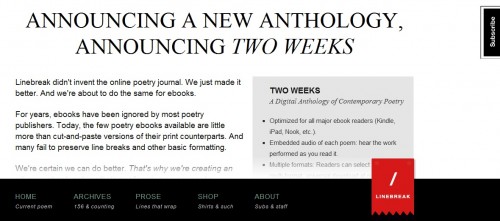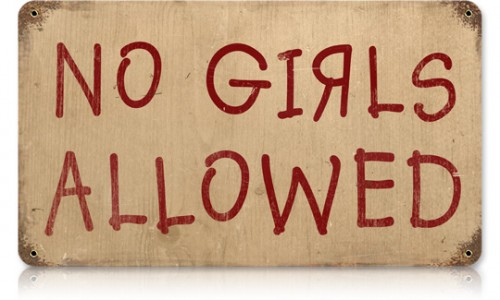More people are self publishing. Same story, different newspaper. One interesting line: “If you write a book, you are an expert,” says Dr. Martin, who spent roughly $40,000 to publish and market five books, including “Are Your Teeth Killing You?” and “This Won’t Hurt a Bit.”
More people are self publishing. Same story, different news outlet. One interesting line: “In today’s tight traditional publishing market, agents, editors, and publishers are now encouraging authors to test market their book by self-publishing.”
Child prodigies are terribly interesting to me so I quite enjoyed this fantastic essay about Barbara Rogers née Follett. One interesting line: “‘In a multitude of ways,” Wilson Follett reported, “we become more and more convinced of the expediency of letting the typewriter be, so far as a machine can, the center and genesis of the first processes.’”
Susan Orlean has a fine bit of an essay here about loving all manner of books and the battle between reading and, well, everything else. One interesting line: “I think the only real battle is between the challenge of getting people to read and the fact that many other pastimes are easier, quicker, and more passive than reading.”
Did you know there’s a memoir about a woman who loved Little House on the Prairie and started adopting some of the LHOP lifestyle? The book is called The Wilder Life and will be out in April 2011. Yes, I am all over this and will be reporting back, come April 11, 2011.
In the Los Angeles Times, David Ulin writes on how we can make the most of both books and e-books. One interesting line: “Their physicality is part of their function; they are meant to be held as well as read.”
The editors of the New York Times Sunday Book Review introduce why criticism matters, then give the platform over to six “accomplished” critics: Stephen Burn, Katie Roiphe, Pankaj Mishra, Adam Kirsch, Sam Anderson, and Elif Batuman.One interesting line, from Batuman’s essay, “Negative criticism is particularly exciting, not only because of schadenfreude, but because once limitations are identified, we glimpse how to transcend them.”
2010 has been recapped for our benefit and here is a megalist of “Best of 2010” lists. Happy New Year, everyone!




